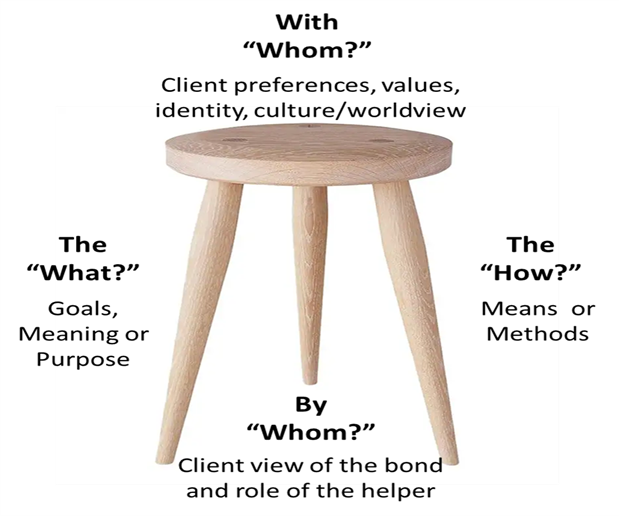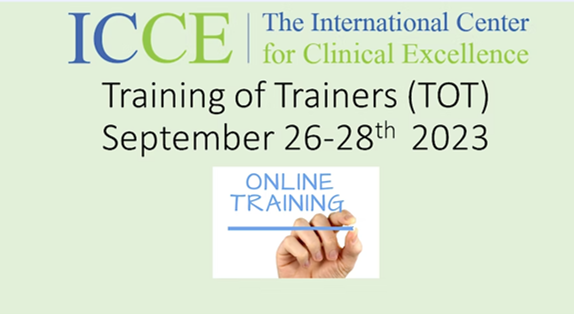
Decades of research shows the client’s experience of the relationship is one of the best predictors of their engagement and progress in care (1). As such, when outcome and alliance data indicate a course of treatment is “at risk” for a negative or null outcome, or drop out, it makes sense to explore the helper’s understanding of the client’s expectations and experiences regarding their working relationship.
Enter the “FIT Alliance Stool” — the subject of the latest “FIT Tip.”
As described in the brief video, the purpose of stool is twofold. First, to remind the clinician of the elements central to client engagement — s factor long ago established as the number one process-related predictor of outcome (2). And second, to provide a practical tool for identifying where alignment might be improved so that the work can proceed in a more effective manner.
Experiences reveals typical misalignments include:
- Organizing services around the what the referral source rather than client wants
- Equating the client’s goal with their diagnosis/presenting problem, or helper’s theory-driven objectives; and finally
- Inferring, guessing, or assuming rather than explicitly negotiating the client’s desires, objective(s), and expectations for care
- Conflating the “what” (client’s goals, meaning or purpose) for seeking care with the “how” (it’s means, methods, or process)
- A therapist acting in ways incongruent with the client’s preferences, beliefs, values, worldview, or identity (e.g., culture, gender, sexual orientation, ability, religion/spirituality, nationality, socioeconomic status).
If you’ve never used the “FIT Alliance Stool,” give it a try! If you are a regular user, I hope the “tips” offered in the video below enhance your FIT practice.
Until next time,
Scott
Scott D. Miller, Ph.D.
Director, International Center for Clinical Excellence
P.S.: Registration is now open for the ICCE “Training of Trainers” Intensive. This three-day training is only offered once every two years! As always, space is limited. Click here (or the banner below) for more information or to register.


How do you define an at-risk client? Is it that they aren’t connecting with the therapist?
Hi Scott … watch the video … “at risk” is an empirically-defined construct … related to where the client’s scores fall on the “treatment response trajectory.”
Not sure I understand your comment … can you clarify?
If I may speak from my 50+ years of experience as a therapist, you and your colleagues almost have it. The key therapeutic factor (in my view) is the therapist providing SUFFICIENT support for the client’s explicit AND implicit experiencing, with the latter typically the most important, and which takes the utmost in the therapist’s attention, and which is where most therapist’s fall short. Enjoyed your new post with B.W. on the SAP website. I sent him an email as well My post on SAP: https://bit.ly/3yisRHA